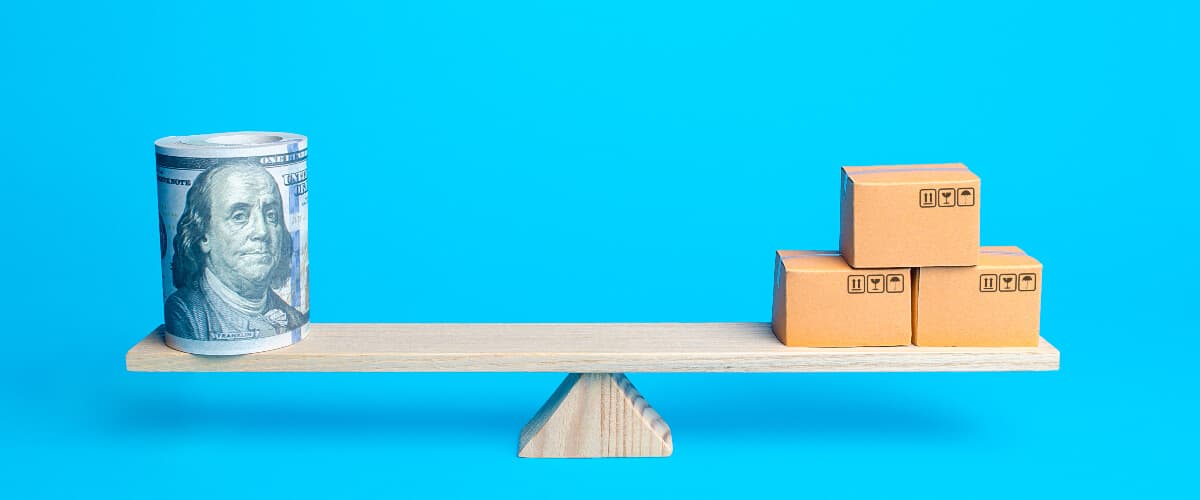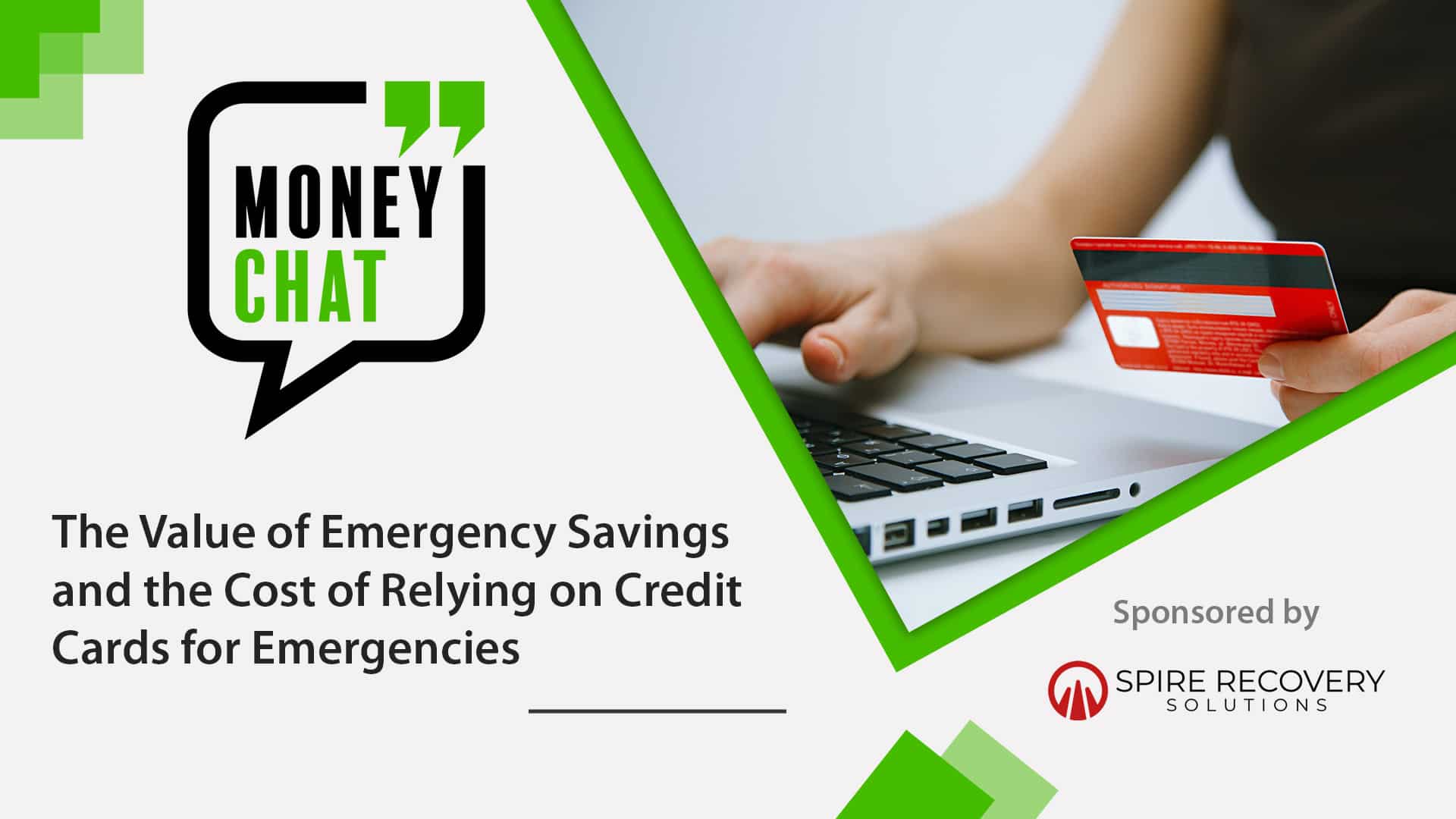
Why Is My Account Not With My Original Creditor?
If your past-due account has moved into collections, you may receive communication from a company other than your original creditor. This could be for a couple of different reasons. Rarely, there are business mergers that account for a name change with original creditors (for example, if your bank merged with a different bank and changed names). In some cases, your account may have changed collectors but not creditors. Most likely though, if you think your account is no longer with your original creditor, your account may have been taken over (purchased) by a different creditor. This is a common part of the collection cycle.
Receiving statements from different creditors or collectors can sometimes make an already overwhelming debt feel more difficult to fully understand, even when the communication is intended to be as clear as possible.
The goal of this Money Chat is to help consumers gain clarity in determining their current creditor and collector, and why these may not be the original creditor.
Original Creditors Explained
First, it may be helpful to clarify what “creditor” means in the context of debt. Generally speaking, a creditor is a business to whom money is legally owed (you likely signed some type of contract or agreement originally) in exchange for money borrowed or goods/services provided. There are many different types of businesses that can be considered original creditors. The following are some common examples: Credit card companies, healthcare providers, utility providers, banks and credit unions, personal short-term loan lenders, mortgage and home equity loan lenders, online lending companies, government agencies, student loan lenders, auto loan lenders, gyms, retail stores, and more.

When an original creditor does not receive payment due for an account— especially for consistent nonpayment over time— that creditor can wind up in a position of financial loss. The expected balance of exchange between creditor and customer becomes uneven.
Stages of Account Delinquency
It can help to know the typical life cycle of a past-due debt to better understand why your account may not be with your original creditor.
Initial Delinquency (Late or Missed Payment)
When you first miss a payment or are late paying a bill, there may be a small grace period of a few days. After that, your account is typically considered delinquent. That’s when you will likely start receiving calls, emails, text messages, or letters (or perhaps a combination of all of the above) in attempts to reach you so you can bring your account current. Sound familiar? Whether by mistake, life crisis, financial strain, or other causes, most people have experienced this stage at some point. This phase of delinquency can last for varying amounts of time depending on the type of account and whether or not you make a payment to bring your account current. (Keep in mind this stage is an important time to communicate and coordinate with your original creditor. There may be options available to help before things get more serious.)
Default
If you consistently fail to make the payments due (and if you are not on any kind of agreed deferment or forbearance plan with your creditor), the account may be categorized as “in default.” This means the agreement or contract has been broken and you have neglected to resolve the past-due balance. The time frame of this stage is often somewhere between 3 – 6 months, depending on the type of account. The collection attempts during this phase are sometimes in-house (done by the creditor) and sometimes outsourced (the creditor hires a company to help collect). While you might receive communication from an outsourced collection agency, the original creditor usually still owns the account and is hoping to receive payment. The creditor still might not have reported your delinquency to the credit bureaus (this varies depending on the creditor and account type as well as various laws and credit reporting regulations).
Charge-Off and Next Steps
If the creditor still hasn’t received payment after a certain timeframe, the next step is to “charge off” the account. This is when the original creditor officially closes the account. Legally in the United States, creditors are required to charge off delinquent accounts after 180 days of nonpayment for revolving credit accounts (such as credit card accounts) or 120 days for installment loan accounts. Charge-off does not mean the creditor accepts the loss. The creditor may take steps to try to recover a portion of the loss in other ways, which can include one or more of the following:
- The original creditor may report the closed account and its delinquent status / missed payments to the credit bureaus. (Check your free legally mandated credit report regularly at AnnualCreditReport.com.)
- The original creditor might “cut the loss” and sell the account for a portion of the balance in exchange for cash upfront. (These types of sales are often done in bulk as this is most efficient for all involved, so your charged-off account might sit in charged-off inventory for some time before being sold, or it could be sold right away.)
- The original or new creditor might use in-house or outsourced collections to continue to attempt to collect payment.
- The original or new creditor might use an in-house or outsourced attorney to sue for a judgment and pursue collection by legal enforcement. (This can vary based on the statute of limitations and other state and federal laws and regulations specific to your account.)
New Creditors Explained
A healthy, functioning credit ecosystem necessitates the collection of unpaid debts to prevent prices and interest rates from rising in response to the financial setbacks caused by unpaid accounts. Creditors understand that most consumers genuinely want to pay their bills, yet may experience hardships and various life obstacles or crises; Nonetheless, a business must be able to survive and must have a plan in place to recover losses as well as to prevent abuse of lending services. Creditors anticipate that a small percentage of accounts may end up delinquent, in default, or charged-off, so there is usually an established process in place for how those accounts will be handled. It is often not economical for businesses to devote a great deal of time and resources to delinquent or defaulted debt. To keep the main focus on providing the core services vital to the business, most creditors rely on dedicated debt collection agencies and law firms as well as debt purchasing businesses to assist here.
Debt Purchasing Companies
There are several primary types of businesses involved in the recovery of unpaid debt, including companies (“debt buyers”) who purchase charged-off accounts from original creditors. If your account statement is reflecting a change in creditors, this could be the reason. Your account may have been purchased by a debt-buying company to help your original creditor recover some of the loss from nonpayment of the account. This new account owner will become known as your account’s “current creditor” while the company you originally owed is the “original creditor.” At this point, the original creditor is no longer involved in the collection of the account.
Collections Continued
If your account has a new creditor as described above, the new creditor will continue with collection efforts. The new creditor may have an in-house collections team or may outsource the account to a collection agency or collection law firm. In general, it is usually best to pay the company collecting the account, or you may be able to pay the current creditor directly to resolve your account.
Consumer Scams
Always be sure you are clear regarding who you are paying for what account, and verify the companies involved. Debt collection is a necessity but it can and should be done ethically. Sadly, there are occasionally consumer scams involving fraudulent collection attempts by fraudulent “companies” posing as legitimate debt collection companies. If your account has changed creditors, take some time to make a phone call and do a search to learn more about the company. If you are unsure about the debt or the account details, request Validation of Debt before making any payments. Save proof of payment and all relevant documentation to be sure everything proceeds as expected. If you have been the victim of a fraudulent debt collection scheme, report it as soon as possible to the Federal Trade Commission.
Resolving debt can be challenging, especially if letters or emails have piled up or you’re no longer sure about the details. Seeking clarity and making a plan are the best way to tackle your account. Starting is the hardest part of any challenge, but debt can be overcome and you can grow your financial situation. Life circumstances are sometimes unavoidable and delinquency can happen to anyone, but learning more may help prevent further delinquent debt in the future.
Additional Resources
If you want to learn more about financial literacy or your rights as a consumer, please visit the Receivables Info Resources Page.
Have an idea for a Money Chat topic?
We want to hear from you! If you have a suggestion for a future Money Chat topic, please email us at [email protected].
The information contained in this article is meant to serve as general guidance for consumers and not meant to serve as comprehensive financial advice. For questions about your individual circumstance, finances, or accounts, please contact your creditor(s) and/or financial advisor directly.
Thank you to our Sponsor
This article was sponsored by National Debt Holdings (NDH), a client-centric receivables management firm assisting creditors with improving their cash flow performance from account portfolios. Our team of professionals strives to provide meaningful personal relationships and develop customized financial solutions that create success for everyone while protecting the brand and reputation of clients. National Debt Holdings is headquartered in Ft. Lauderdale, FL, and is an RMAI Certified Receivables Business.









